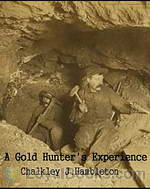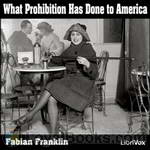|
Books Should Be Free Loyal Books Free Public Domain Audiobooks & eBook Downloads |
|
|
Books Should Be Free Loyal Books Free Public Domain Audiobooks & eBook Downloads |
|
Top Authors |
|---|
|
Book type:
Sort by:
|
By: Vicente Blasco Ibáñez (1867-1928) | |
|---|---|
 Four Horsemen of the Apocalypse
Four Horsemen of the Apocalypse
The Four Horsemen of the Apocalypse, by Vicente Blasco Ibañez and translated into English by Charlotte Brewster Jordan, depicts two branches of a family with its roots in the pampas of Argentina. The wealthy Argentinian, Julio Madariaga, comes from Spain and raises himself from poverty, becoming a self-made, wealthy cattleman. He is a man of extremes; an honest man with a rascally knack for taking advantage of others; a self-made man with overweening pride, prejudices, and a sharp, flinty temper that can spark into violence, he is at the same time given to great generosity toward those who are under him... | |
 The Torrent Entre Naranjos
The Torrent Entre Naranjos
| |
 The Blood of the Arena
The Blood of the Arena
| |
 Woman Triumphant (La Maja Desnuda)
Woman Triumphant (La Maja Desnuda)
| |
 Sónnica
Sónnica
| |
 The Shadow of the Cathedral
The Shadow of the Cathedral
| |
 Luna Benamor
Luna Benamor
| |
 The Dead Command From the Spanish Los Muertos Mandan
The Dead Command From the Spanish Los Muertos Mandan
| |
 Mayflower (Flor de mayo) A Tale of the Valencian Seashore
Mayflower (Flor de mayo) A Tale of the Valencian Seashore
| |
 Mare Nostrum (Our Sea) A Novel
Mare Nostrum (Our Sea) A Novel
| |
By: Ray Cummings (1887-1957) | |
|---|---|
 Brigands of the Moon
Brigands of the Moon
Gregg Haljan was aware that there was a certain danger in having the giant spaceship Planetara stop off at the moon to pick up Grantline’s special cargo of moon ore. For that rare metal — invaluable in keeping Earth’s technology running — was the target of many greedy eyes. But nevertheless he hadn’t figured on the special twist the clever Martian brigands would use. So when he found both the ship and himself suddenly in their hands, he knew that there was only one way in which he could hope to save that cargo and his own secret — that would be by turning space-pirate himself and paying the Brigands of the Moon back in their own interplanetary coin. (From the Gutenberg e-text) | |
 The Girl in the Golden Atom
The Girl in the Golden Atom
While examining a golden ring under a microscope, a chemist discovers a sub-atomic world. During his examination of this world he sees a beautiful young girl. After developing chemicals that will allow him to either shrink or grow larger in size, he and three friends journey to this small world. | |
 Fire People
Fire People
In effect Professor Newland declared that the curious astronomical phenomena of the previous November--the new "stars" observed, the two meteors that had fallen with their red and green light-fire--were all evidence of the existence of intelligent life on the planet Mercury. (An excerpt from chapter 1. ) | |
 Wandl the Invader
Wandl the Invader
There were nine major planets in the Solar System and it was within their boundaries that man first set up interplanetary commerce and began trading with the ancient Martian civilization. And then they discovered a tenth planet--a maverick! This tenth world, if it had an orbit, had a strange one, for it was heading inwards from interstellar space, heading close to the Earth-Mars spaceways, upsetting astronautic calculations and raising turmoil on the two inhabited worlds. But even so none suspected then just how much trouble this new world would make... | |
 The White Invaders
The White Invaders
| |
 Tarrano the Conqueror
Tarrano the Conqueror
In "Tarrano the Conqueror" is presented a tale of the year 2430 A.D.--a time somewhat farther beyond our present-day era than we are beyond Columbus' discovery of America. My desire has been to create for you the impression that you have suddenly been plunged forward into that time--to give you the feeling Columbus might have had could he have read a novel of our present-day life. To this end I have conceived myself a writer of that future time, addressing his contemporary public. You are to imagine... | |
By: Chalkley J. Hambleton | |
|---|---|
 A Gold Hunter's Experience
A Gold Hunter's Experience
“Early in the summer of 1860, I had an attack of gold fever. In Chicago, the conditions for such a malady were all favorable. Since the panic of 1857 there had been three years of general depression, money was scarce, there was little activity in business, the outlook was discouraging, and I, like hundreds of others, felt blue.” Thus Chalkley J. Hambleton begins his pithy and engrossing tale of participation in the Pike’s Peak gold rush. Four men in partnership hauled 24 tons of mining equipment by ox cart across the Great Plains from St... | |
By: Kate Langley Bosher (1865-1932) | |
|---|---|
 Mary Cary, Frequently Martha
Mary Cary, Frequently Martha
“My name is Mary Cary. I live in the Yorkburg Female Orphan Asylum. You may think nothing happens in an Orphan Asylum. It does. The orphans are sure enough children, and real much like the kind that have Mothers and Fathers; and that’s why I am going to write this story.” So begins Mary’s diary, which she fills with her various doings and misadventures at the Asylum in Virginia and her sharp observations about life and human nature. She loathes Miss Bray, the head of the Asylum, who is not above telling bald-faced lies to the Board to further her own selfish ends... | |
 People Like That
People Like That
A single woman from a family that is well-off, buys a house at a place that is looked down upon and disapproved by her family and friends alike. Her reason - she wants to live the life of and know people like that. (This book's got one of the cutest romantic endings I've ever read). What is surprising is this book is in the PD - there are quite a few modern expressions and comparatively less quaint, out-of-fashion expressions. | |
 Kitty Canary A Novel
Kitty Canary A Novel
| |
 How It Happened
How It Happened
| |
 Miss Gibbie Gault
Miss Gibbie Gault
| |
 The Man in Lonely Land
The Man in Lonely Land
| |
By: Edward Phillips Oppenheim | |
|---|---|
 The Zeppelin's Passenger
The Zeppelin's Passenger
The Zeppelin’s Passenger is a tale of German espionage in England during World War I. Dreymarsh is a fictional “backwater” area in England with no apparent military value. The story begins with Dreymarsh residents discovering an observation car from a German zeppelin along with a Homburg hat near Dreymarsh. The mystery is further complicated when an Englishman, Mr. Hamar Lessingham, presents himself at Mainsail Haul which is the residence of Sir Henry Cranston. Lessingham bears with him, hand-carried letters from Major Richard Halstead, and a British prisoner of war in Germany... | |
 The Great Impersonation
The Great Impersonation
E. Phillips Oppenheim, an English novelist created well in excess of 100 novels and 30 plus collections of short stories. Most of his tales are thrillers and espionage. The Great Impersonation was written following World War I and is considered by many to be perhaps his best novel. The story focuses on German espionage in England prior to the start of World War I. The tale centers on two characters that are almost identical in appearance. Indeed, while both attend the same school in England, they are often mistaken for one another... | |
By: Havelock Ellis (1859-1939) | |
|---|---|
 Studies in the Psychology of Sex, Volume One
Studies in the Psychology of Sex, Volume One
The first of six volumes, this volume covers in extensive detail the topics of "The Evolution of Modesty", "The Phenomena of Sexual Periodicity", and "Auto-Eroticism". Written as an anthropological and psychological study from the point of view of Havelock, the famous British sexologist of the late 19th century, who was also a physician and social reformer. | |
 Essays in War-Time Further Studies in the Task of Social Hygiene
Essays in War-Time Further Studies in the Task of Social Hygiene
| |
 Little Essays of Love and Virtue
Little Essays of Love and Virtue
| |
 The Task of Social Hygiene
The Task of Social Hygiene
| |
 Impressions and Comments
Impressions and Comments
| |
By: Fabian Franklin | |
|---|---|
 What Prohibition Has Done to America
What Prohibition Has Done to America
In What Prohibition Has Done to America, Fabian Franklin presents a concise but forceful argument against the Eighteenth Amendment of the U.S. Constitution. Beginning in 1920, this Amendment prohibited the sale and manufacture of alcoholic beverages in the United States, until it was repealed in 1933. Franklin contends that the Amendment “is not only a crime against the Constitution of the United States, and not only a crime against the whole spirit of our Federal system, but a crime against the first principles of rational government... | |
By: Mary Baker Eddy (1821-1910) | |
|---|---|
 Science and Health, with Key to the Scriptures
Science and Health, with Key to the Scriptures
| |